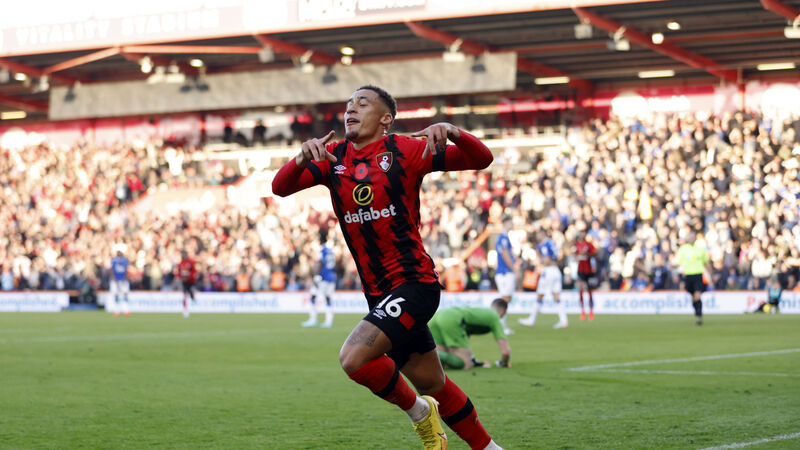Paul Rouse: Bookmakers not afraid of losing their shirts

Bournemouth’s Marcus Tavernier celebrates scoring a goal for the club sponsored by an offshore gambling operation from the Philippines.
There has been much noise about the decision of the Premier League to stop gambling brands from advertising on the front of match-day jerseys from the 2026-27 season.
The presentation of this decision as evidence that English soccer is serious about grappling with the manner in which the game has been colonised by gambling is nonsense.









